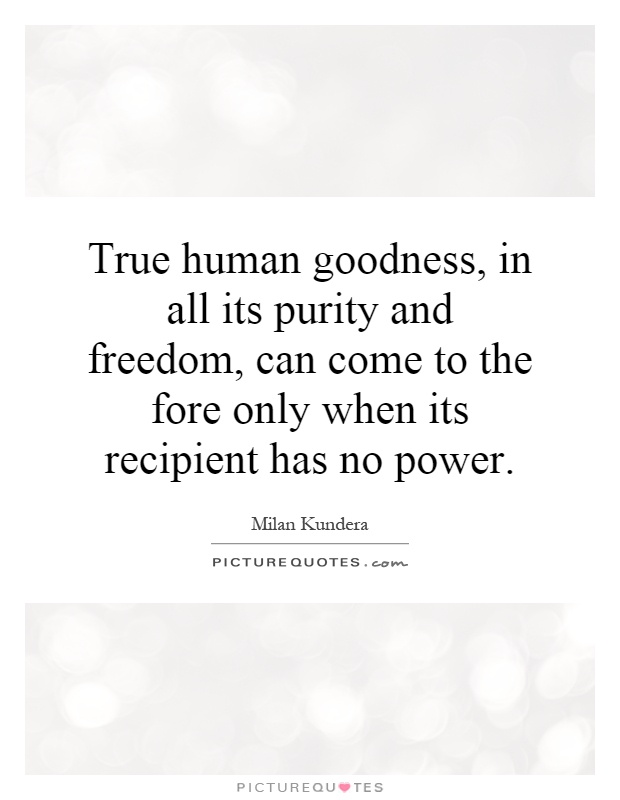True human goodness, in all its purity and freedom, can come to the fore only when its recipient has no power

True human goodness, in all its purity and freedom, can come to the fore only when its recipient has no power
Milan Kundera, the renowned Czech author, is known for his profound insights into the complexities of human nature and relationships. In his works, he often explores the themes of power dynamics, morality, and the true nature of goodness. One of his most famous quotes, "True human goodness, in all its purity and freedom, can come to the fore only when its recipient has no power," encapsulates a central idea that runs through much of his writing.Kundera suggests that true goodness can only be expressed when there is no expectation of reward or recognition. When someone in a position of power receives an act of kindness or generosity, there is often a sense of obligation or indebtedness that can cloud the purity of the gesture. However, when the recipient of an act of kindness has no power over the giver, the goodness of the gesture shines through in its purest form.
This idea is reflected in many of Kundera's works, where characters grapple with questions of morality and ethics in the face of power imbalances. In "The Unbearable Lightness of Being," for example, the protagonist Tomas struggles with his own sense of morality as he navigates relationships with women who are drawn to him because of his power and status. It is only when he encounters Tereza, a woman who has no power over him, that he is able to truly express his love and goodness.
Similarly, in "The Book of Laughter and Forgetting," Kundera explores the ways in which power can corrupt relationships and distort the true nature of human goodness. Through a series of interconnected stories, he shows how acts of kindness and generosity can be tainted by the expectations and desires of those in positions of power.
Overall, Kundera's quote speaks to the idea that true human goodness is a rare and precious thing, one that can only be fully realized in the absence of power dynamics. It is a reminder that the purest expressions of kindness and generosity come from a place of genuine empathy and compassion, rather than from a desire for control or influence.












 Friendship Quotes
Friendship Quotes Love Quotes
Love Quotes Life Quotes
Life Quotes Funny Quotes
Funny Quotes Motivational Quotes
Motivational Quotes Inspirational Quotes
Inspirational Quotes